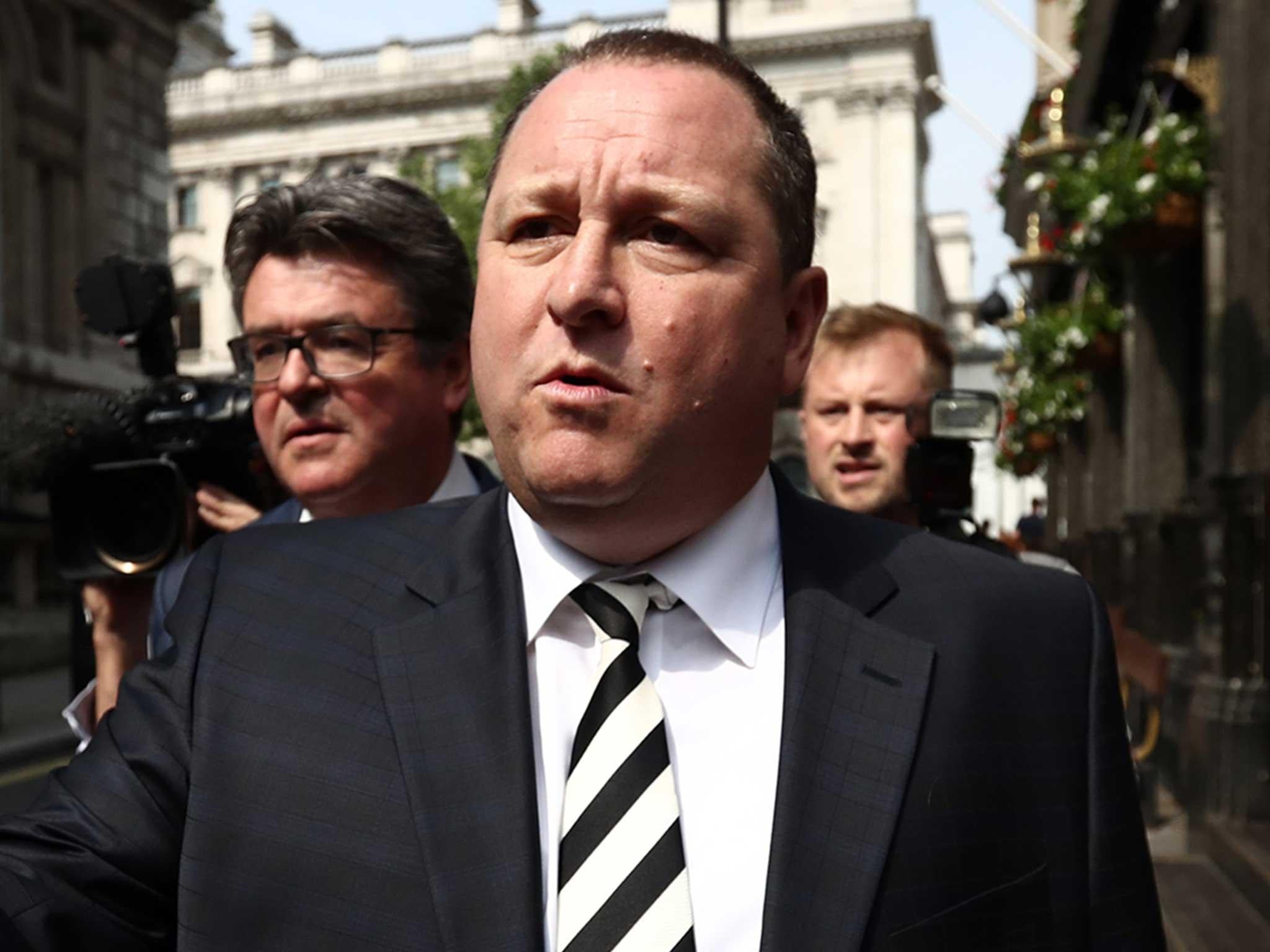Not much has changed at Sports Direct – particularly Mike Ashley
Mike Ashley's actions suggest that for all the assurances given before MPs in a famously dramatic hearing before the Business Select Committee, Mr Ashley’s feel for public relations and the best interests of his company and all its stakeholders is not as assured as they might wish

The reappointment of the chairman of a sports/leisure wear company would usually not signal very much about the state of British business. Sports Direct however, as in so many areas at this scandal-hit company, is not a case of business as usual.
Keith Hellawell, still better known as a high-profile chief constable than for his new career in the corporate world, has been rejected once again by the independent shareholders in Sports Direct. Some 54 per cent of the votes held by various pension funds and smaller investors were cast against him, a highly unusual vote of no confidence, in effect. Even so, Mr Hellawell can hang on because he has the 100 per cent support of the majority shareholder, Mike Ashley.
Even so, an overall vote of 81 per cent for Mr Hellawell’s reappointment as chairman is extremely lukewarm by the usual standards of such polls. Near unanimity for all the directors, like the reappointment of the auditors and approval of the annual report and accounts is very much the normal course of events.
Mr Ashley, who founded the firm and owns much of it, is entitled to vote for who he wishes as chair. No one is suggesting there is anything “dodgy” in the voting, merely that it highlights the way that smaller shareholders’ views, even when represented by substantial City instructions, can be effectively ignored. It also suggests, more fundamentally, that for all the assurances given before MPs in a famously dramatic hearing before the Business Select Committee, Mr Ashley’s feel for public relations and the best interests of his company and all its stakeholders is not as assured as they might wish. One of the widely perceived issues at Sports Direct has been its corporate governance, and, with no apparent sense of irony, Mr Ashley has just confirmed that those problems are very much still there.
It is fair to say, as Mr Ashley stresses, that he has made some progress at Sports Direct, for example over the working conditions of his staff and casual workers, but he has not, in the opinion of many, done enough to reform the way the company is run. In the summer he admitted that the company had grown too large for him to able to manage properly, yet in the autumn this majority shareholder installed himself as chief executive. This is not ideal corporate governance for a large listed company, and Mr Ashley would have been wise to take heed of so many of his shareholders who want a new chair and a new way of running the company, as Mr Ashley has at times seemed to indicate he too wanted.
Pirc, Institutional Shareholder Services, Standard Life, Aberdeen Asset Management, Royal London and Hermes – reputable groups of investors who are usually unwilling to cause trouble for the hell of it – have become outspoken about Sports Direct. Its share price performance has been disappointing, and the operational damage to a retail business that depends on the goodwill and the loyalty of its customers has been obvious. Something will have to give as Sports Direct, and companies like it, and it would be much better for all concerned, including Mr Ashley, if the pressure for change came from within rather than from outside.
In the meantime, we look forward to Mr Ashley’s next conversation with MPs.
Join our commenting forum
Join thought-provoking conversations, follow other Independent readers and see their replies
Comments
Bookmark popover
Removed from bookmarks